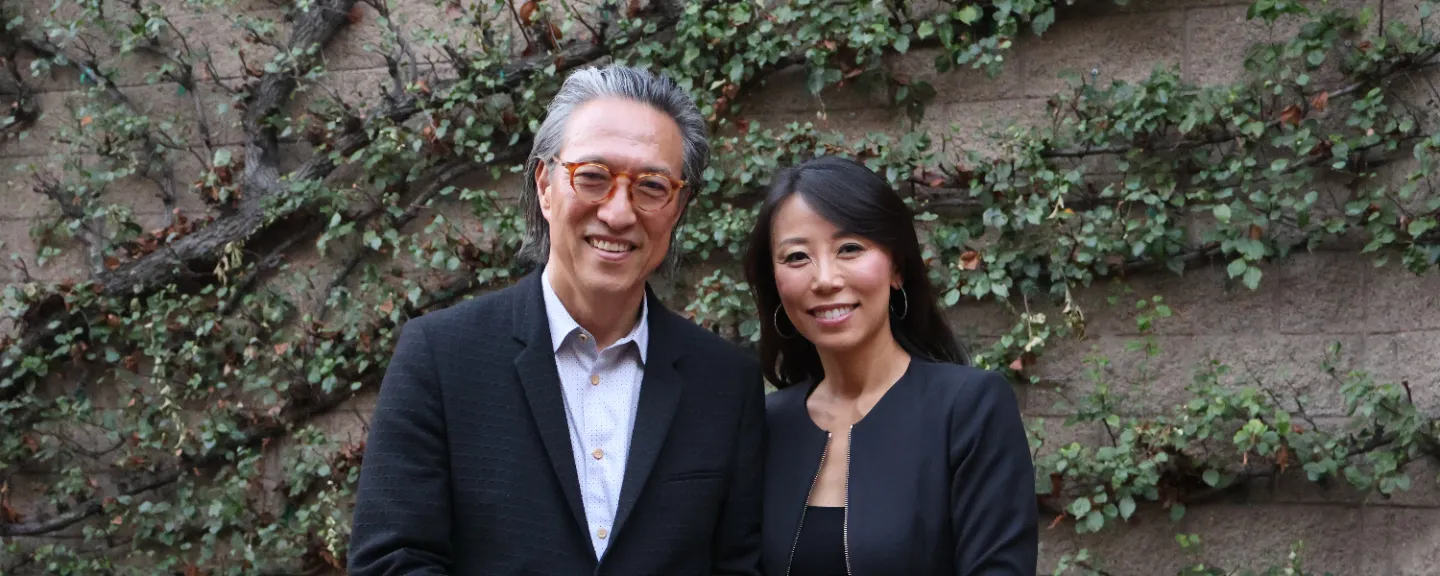- Home
- >
- APU Articles
- >
- News Article
Makoto Fujimura Presents 2023 James L. Hedges Lecture
October 24, 2023 | Written By Saundri Luippold

In honor of the late professor and former English department chair, James L. Hedges, APU invites artists from varying backgrounds to deliver a lecture, in order to expand students’ learning beyond the textbook and into real world experiences. “According to Fujimura, we are called to cooperate with God in sowing seeds of beauty and mercy both through our own creative work and our responses to the creative work of others,”said Windy Counsell Petrie, PhD, current chair of the English department. “Fujimura reminds us that 'It is up to Christians to interpret artists’ dreams and visions with grace.’ This is exactly what we train our English students to do.”
Students were thrilled to hear from Fujimura, with many having recently read his book Art and Faith: A Theology of Making, in their English classes. He titled his lecture “The Shock of the New New,” teaching students across various majors that art, including writing, performing, and visual art, transcends time and place when artists seek to redefine what we consider new. He often referred to the Greek word kainos, meaning “new newness,” expressing art as an extension of Christ’s regeneration in humanity.
Fujimura elaborated on the meaning of kainos, drawing inspiration from Bible verses that direct Jesus’ followers to seek newness. The New Testament refers to “new wine” in Mark 2:22, “new creation” in 2 Corinthians 5:17, and “new earth” in 2 Peter 3:13. Overall, kainos is written 44 times in the New Testament.
“Kainos is not simply transformation, but transfiguration,” Fujimura said. “In order to transfigure our lives, we must invite Jesus as the creator into our hearts.”
Allowing Jesus to transform our hearts causes a newness to flourish, revealing itself in the art we create. Excellent creativity comes down to knowing and being transformed by the creator Himself.
In order to cultivate transformation as an artist, Fujimura taught that we must allow Jesus to mend our brokenness. Fujimura spoke about kintsugi, a Japanese tradition that involves mending broken dishes with lacquer and gold, creating something even more beautiful than it was before. This, Fujimura believes, is what makes art great. Fujimura’s current justice project is using kintsugi in peace-making around the world. By embracing imperfection, letting God mend our broken selves, we become God’s art, and are able to implement the same outlook in any sort of art. “If our goal is to love, we can pour gold into the fractures of the world,” Fujimura said. He acknowledged the courage it takes to accept the brokenness of the world, but by seeking beauty in the fissures, we can create art that transforms not only ourselves, but the world.
After Fujimura’s outstanding lecture, students and faculty gathered for a dessert reception. Fujimura answered questions about art, faith, and kintsugi. Students enjoyed taking photos with him, having their books signed, and getting an up close look at a kintsugi bowl.
The opportunity to hear from someone as talented and inspirational as Fujimura, as well as engaging in conversation with one another about his profound teaching, broadened students’ perspectives about art, theology, and community. Attentively listening to artists like Fujimura and putting his teachings into practice reminds us that putting God First in any endeavor is as beautiful as mending a broken bowl with gold.